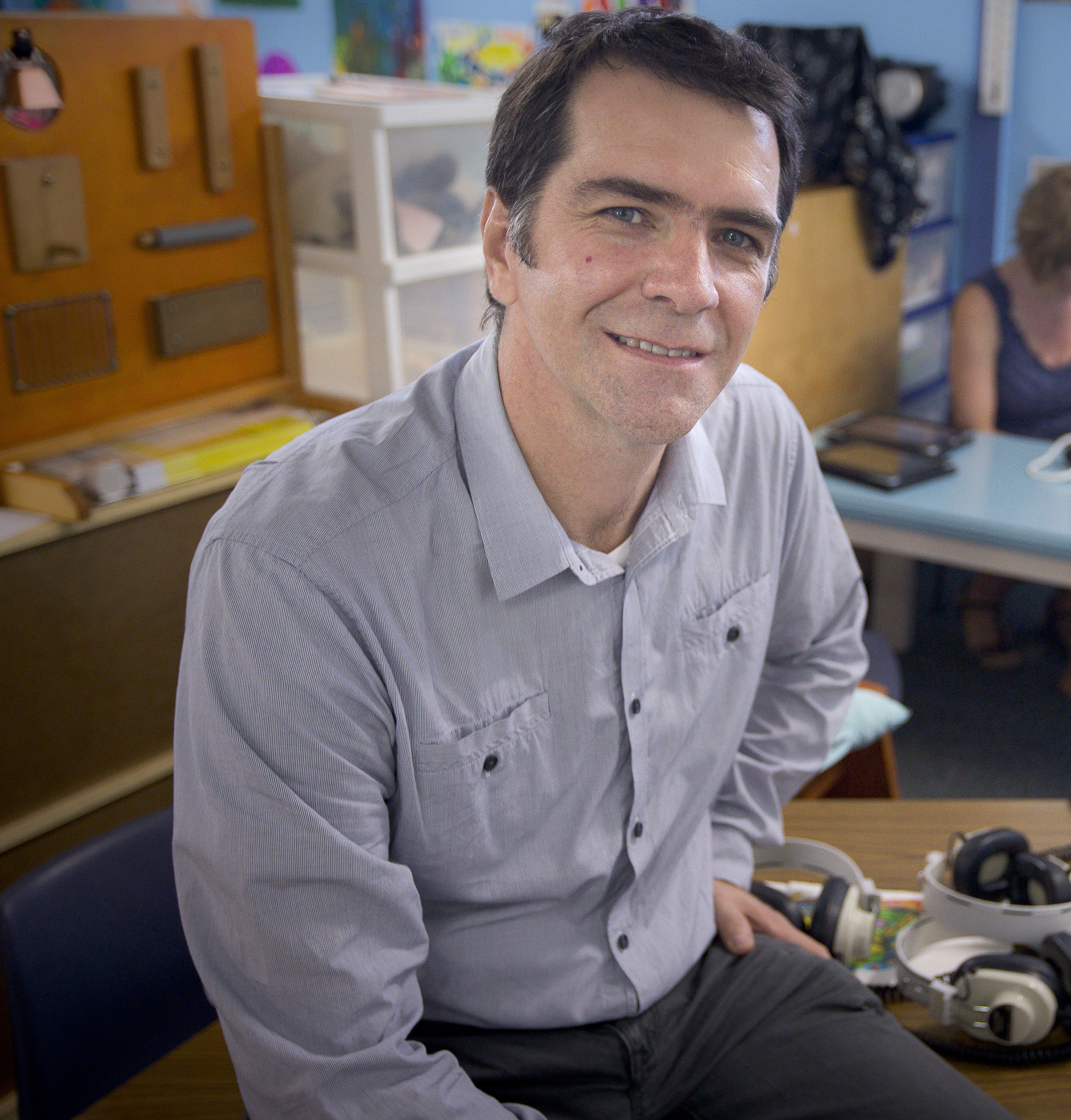
When it comes to access to digital platforms and technologies, not all people have an equal experience, but a QUT-led project aims to address the growing gap experienced by as many as three million Australians living below the poverty line.
Federal Minister for Education Dan Tehan today announced an (ARC) linkage grant of $620,765 for the Advancing digital inclusion in low income Australian families project which will focus on families in six diverse communities from Far North Queensland to Tasmania, across diverse urban, regional and rural locations.
Lead researcher Associate Professor Michael Dezuanni, Associate Director of QUT’s , says a lack of access to digital technology impacts on low-income families’ access to education, parenting, social participation, and employment.
“Digital participation has been shown to substantially increase opportunities for, and pathways to, civic engagement, financial stability and wellbeing, said Professor Dezuanni, who noted the funding announcement coincided with Global Accessibility Awareness day.

“The COVID-19 pandemic has really highlighted the digital divide that exists in Australia, especially with the temporary closure of schools and universities switching to online learning.
“Our project focuses on the digital inclusion implications of children’s home and school learning experiences, school leavers’ transitions into work, and parenting in digital times.
“We will also be looking at the complex relationship between digital and social inclusion, and the role of social infrastructure such as education facilities, charities, and government services in supporting low-income families in this area.
“Ideally, the project will help develop new practices, policies and sector-wide solutions. The Australian Government 2018 Future report stated all Australians need access to the technologies and the skills required to use them if they’re to fully take part in social and economic life.”
“The project’s findings will also strongly position the Australian charity sector to develop policy, programs and capacity-building activities to empower families at the community level to participate in the digital economy.”
Professor Dezuanni and fellow QUT researchers Professor Marcus Foth and Associate Professor Peta Mitchell will collaborate with researchers from Swinburne University, Western Sydney University and RMIT. The project partners are The Smith Family, Infoxchange, yourtown, the Good Things Foundation Australia and LEEP NGO.
Three other QUT projects were included in the ARC round of linkage grants announced today:
- Time-Use, Time Poverty and Teachers’ Work: $232,347 to research the workload of teachers and principals – led by Associate Professor Greg Thompson
- Reducing young women’s offending through improved service delivery: $244,381.00 to discover how justice and welfare agency systems could be better designed to improve outcomes for young women – led by Associate Professor Kelly Richards and Professor Kerry Carrington
- Achieving gender equality in STEMM hospital and health service research: $251,442.00 to address why gender inequality remains pervasive in Science, Technology, Engineering, Mathematics and Medicine workforces, despite substantial, wide-ranging efforts to effect change – led by Associate Professor Robyn Mayes and Professor Paula McDonald







